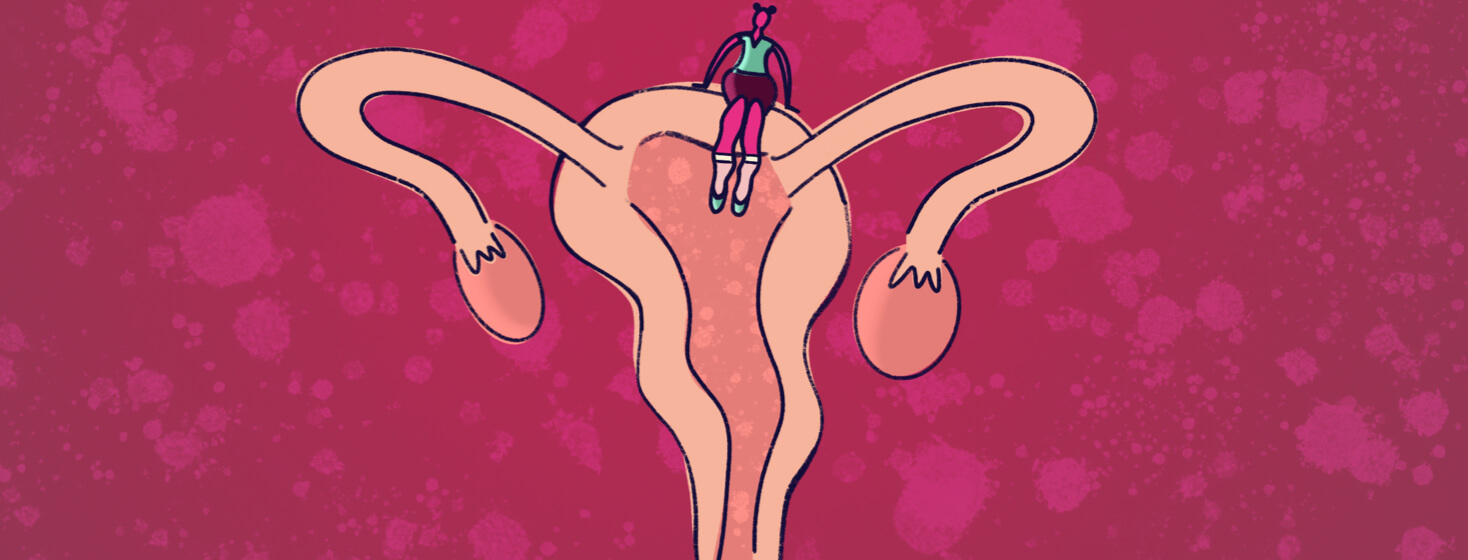RLS and the Menstrual Cycle
Restless legs syndrome (RLS) is a disorder that causes discomfort in the legs and the feeling that you have to move them. This feeling typically happens during the night or while sitting for long periods of time. RLS is considered both a sleep and a movement disorder. But it does not only affect sleeping and moving.1
RLS occurs more in people who have their period (menses or menstruation) than in people who do not. Typically, it also occurs in people who are middle-aged and older. Because of these connections, researchers have looked into the link between RLS and menstruation. And they have found that RLS connects not only to menstruation, but to endometriosis and menopause, too.1-6
RLS symptoms can worsen during your period
People with RLS who also menstruate can have an increase in symptoms during their periods. In a 2019 study of 20 women, 30 percent of the participants reported that they had worse RLS symptoms when menstruating. On average, they said their RLS symptoms were 40 percent worse during a menstrual period.2
The researchers thought RLS symptoms might be worse during your period because of low iron (anemia). Normally, the amount of iron in your body gets lower when you begin having periods in adolescence. It then rebounds during adulthood. Iron is stored in a protein called “ferritin” in the blood. Ferritin or iron levels can be lower in people with RLS.1
But this was not the case in the study. Pregnant people do tend to have increased RLS symptoms. But the study did not find a link between low iron levels and RLS in people who were not pregnant. In fact, there were more people with anemia in the study group that did not have increased RLS symptoms during their periods.1,2
However, the blood samples in this study were not taken while the participants were menstruating. It is possible that comparing people’s menstrual levels of ferritin/iron to their baseline levels would be a more accurate statistic. People with a lower relative ferritin level during menstruation (compared to their baseline) are more likely to have their RLS symptoms worsen.2
Iron supplements are one therapy available to people with RLS who also have anemia. You can talk to your doctor about assessing your menstrual iron levels to determine if supplements could help you.3
RLS and endometriosis
Endometriosis is a common chronic disease. It happens almost exclusively among people who menstruate and affects about 10 percent of them. It causes increased pain during your period. More than half of people with endometriosis report significant impacts on their quality of life during their periods.3
People with endometriosis have a greater risk of RLS, as well as worse RLS symptoms. Much research still needs to be done on what exactly the link is between the 2 disorders. It is possible that there is a hormonal component to RLS that has been overlooked.3
People with endometriosis report higher rates of chronic pain syndromes, including:3
- RLS
- Irritable bowel syndrome (IBS)
- Fibromyalgia
- Painful bladder syndrome
All of these connections between chronic diseases point toward a major need to understand the link between them. Many symptoms such as lack of sleep and low mood are shared between RLS and endometriosis. And though they do not fully understand, doctors are looking for how best to relieve these symptoms.3
RLS and menopause
Many people with RLS who go through menopause report worse symptoms afterward. There are a few possible explanations for this.5,6
It is possible that the decrease in estrogen and progesterone during menopause causes worsening symptoms. Menopause also causes sleep disruptions such as sleep apnea and hot flashes, which could make RLS worse. Finally, age-linked factors like bladder issues or arthritis could be the culprit.5
The prevalence of RLS among postmenopausal people is quite high comparatively. Other factors that affected the likelihood someone would have RLS included:6
- Smoking
- High blood pressure (hypertension)
- Anemia
- Diabetes
Researchers are still looking into what the exact cause of RLS symptoms is. There is a clear unmet need for understanding just how menstruation, endometriosis, and menopause impact RLS symptoms. As researchers learn more about RLS, the options for symptom management will also continue to look up.

Join the conversation